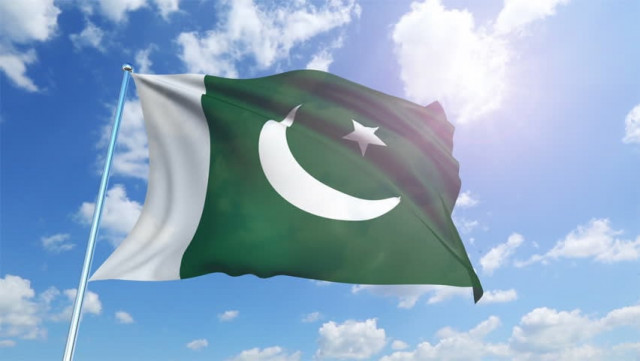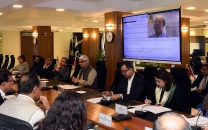Rewriting the record: scholars call for honest, inclusive approach to Pakistan’s past
Speakers at PHS’ Diamond Jubilee reflect on bias, erasure; urge historical objectivity and transparency

“Let us say goodbye to distortions in history,” said Professor Emeritus, Quaid-i-Azam University Islamabad, Dr Syed Wiqar Ali Shah, in his keynote address at the conference titled ‘The State of History and Historiography in Pakistan.’ The event, in commemoration of the Diamond Jubilee of the Pakistan Historical Society (PHS), was held at the University of Karachi (UoK).
Featuring a host of researchers, scholars, and thinkers, the PHS - in collaboration with Hamdard Foundation Pakistan and the UoK’s Department of History - aimed to reflect on how historical narratives have been shaped by power, ideology, and institutional control, the manner in which the discipline has evolved in the country, along with recommendations to aid historical writing, teaching, and accuracy.
In her welcome address, President of both the PHS and Hamdard Foundation, Saadia Rashid presented a brief history of the Journal of the PHS, which has been in publication since the early 1950s and has published 88 works, to date, in English, Urdu, and Persian. Rashid highlighted the importance of promoting historical study and fostering deeper understanding of the discipline at both local and international levels.
Building on her remarks, keynote speaker Dr Shah highlighted Pakistan’s shortcomings in promoting historical objectivity and accuracy. Tracing the evolution of historical study, Shah discussed how figures such as Homer, Thucydides, Socrates, and Ibn Khaldun contributed to the development of the field. Referring to Khaldun’s “The Muqaddimah,” which presents a view of universal history, Shah described the discipline as “the study of the past to predict the future.” The speaker mentioned that figures of antiquity, such as Khaldun, managed writing that presented information to succeeding generations, aiding their understanding of the broader world, as well as their preparedness regarding it.
Here, however, Shah stressed that history, which he termed a branch of philosophy, must be studied with nuance without ignoring individual realities in the pursuit of homogeneity. Highlighting the manner in which colonial powers demeaned and ignored Orientalism to promote Western hegemony and homogeneity, Shah named the era the one in which South Asian history “suffered the most.”
In this regard, speakers stressed the importance of objective and honest historiography, which they argued has been shaped by post-colonial powers and those of a divisive nature. Further, Shah noted that the country’s educational curriculum makes use of material that promotes an “us versus them” dynamic between the country and those beyond, keeping students from learning about religions, regions, and systems different to their own. Speakers maintained that the state of historiography in Pakistan must, therefore, be promoted to one that fosters curiosity, learning, and enlightenment, over sheltering, prejudice, fear, or misunderstanding.
Furthermore, the Dean of Social Sciences at Sohail University and Director at the Institute of Historical and Social Research, Karachi, Professor Dr Syed Jaffar Ahmed, underscored the need to promote and preserve the voices of who he termed the “absentees of history” - including women, minority communities, and marginalised regional individuals.
He, along with the other speakers, highlighted the need to maintain these voices in historical literature and research through the removal of obstacles that may hinder them. These obstacles include systemic issues such as lack of funding opportunities, threats from those wishing to maintain the status quo, and politically-manipulated appointments that leave deserving individuals at the margins.
To tackle such impediments, conference speakers urged for the need to diversify and decentralise the information mechanism to one that is interdisciplinary and intersectional, aiding people, communities, and regions to be seen, heard, and remembered, aiding future generations in tracking their histories, backgrounds, and identities. The panelists called for the countering of state-centric notions of truth, through autobiographies, memoirs, and oral histories, along with history-based and community level literature and research.





















COMMENTS
Comments are moderated and generally will be posted if they are on-topic and not abusive.
For more information, please see our Comments FAQ